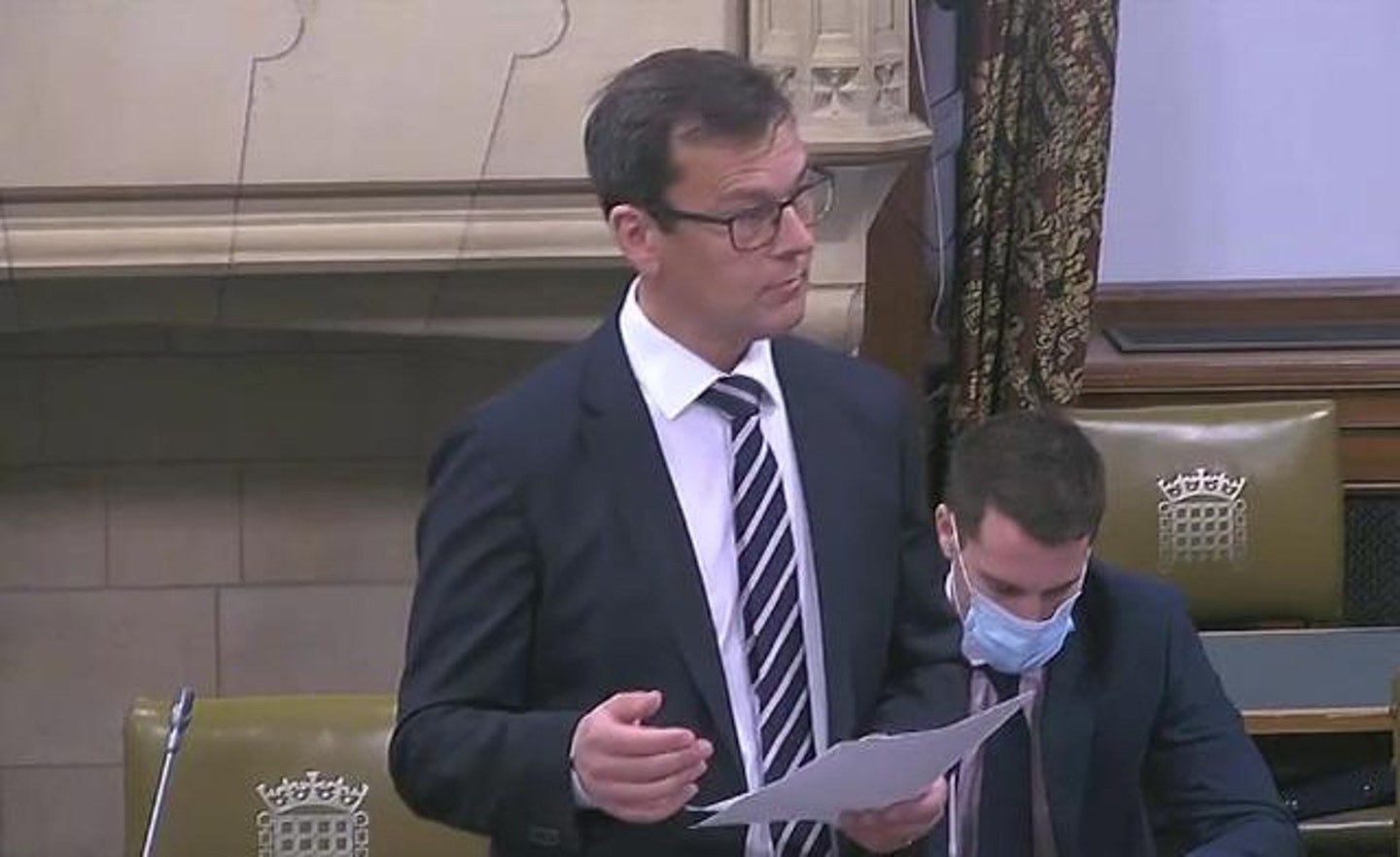Yesterday, Tory MP Nick Fletcher blamed female representation in cinema for the increase in young men committing crimes. Pointing to instances where female actors have been considered for typically male characters - like Doctor Who and James Bond - he condemned the rise of powerful female role models in entertainment.
Yes, this is what our government is discussing while Brexit causes widespread shortages, the NHS falls apart and people die crossing the English Channel.
‘Everywhere not at least within the cultural sphere, there seems to be a call from a tiny yet very vocal minority that every male character or good role model must have a female replacement,’ Fletcher said during a debate on International Men’s Day. ‘One only needs to look at the discussion around who will play the next James Bond.

‘And it’s not just James Bond, in recent years we have seen Doctor Who, Ghostbusters, Luke Skywalker, The Equaliser all replaced by women and men are left with The Crays and Tommy Shelby,’ he continued. ‘Is there any wonder we are seeing so many young men committing crime?’
Labour Party chair Anneliese Dodds was quick to correct him, initially asking if she misheard him, and stating that the reasons men choose to commit crimes are ‘far more complex’ than ‘who should be the next 007.’
A video of Fletcher's speech has since gone viral online, with the Don Valley MP releasing a statement saying his words were ‘misconstrued’ and he ‘in no way linked Dr Who being female to crime being committed by men.’
Rephrasing his point in said statement, Fletcher clarified that he meant there are ‘increasingly fewer positive male role models for young boys’ and that ‘young men also need positive role models within the media, just as women do.’
‘When a boy's role models are all violent criminals (fictional or not), this negatively influences how they view masculinity and what it means to be a man,’ Fletcher said.
The thing is, his point that men would benefit from more positive role models is not wrong – he just didn’t need to drag women down to make it. While the root causes of male violence go far beyond media representation, it is true that young children internalise a lot of what they understand about their gender, behaviour and ethics based on entertainment.
But what Fletcher is missing is that positive female role models have just as much impact on young men as they do women. We do not learn about societal norms and strong moral behaviour simply by copying those whose gender is represented similarly to us on screen - children also learn from understanding that even those who don’t look like them are just as strong, intelligent and kind as those who align more closely with their experience of the world.
In fact, young men having powerful female role models is more likely to help them understand the female experience, that women are just as capable as men across the board, and that gender expression doesn’t have to be confined to the binary of masculinity and femininity.
Yes, if all female characters were responsible and respectable while male ones were horrific and toxic men, then maybe young boys would misunderstand what’s expected of them – but that’s simply not the case. There are tons of incredible male role models in cinema right now, Fletcher just doesn’t seem to watch them.
Women can present equally powerful representations of masculinity as men.
The Marvel cinematic universe is made up almost entirely of great male role models, as are most superhero and fantasy genres (Spiderman, Captain America, Thor, Dr Strange… the list goes on.) In animation, Disney promotes tons of male cartoon characters young boys could learn from. And in the action arena Fletcher points to, men have Tom Cruise in Mission Impossible, the male cast of Fast and Furious, and Dwayne Johnson in literally everything he’s ever been in.
Look at the best TV of 2021 alone: Sex Education’s Otis Milburn and Eric Effiong or It’s A Sin’s Ritchie Tozer and Roscoe Babatunde. These are all great male characters that encourage deep introspection, all played by incredible actors.
What Fletcher has done is see a handful of roles also performed by women and taken it as a personal attack on masculinity, as if these women don’t often present incredible representations of masculinity alongside their femininity too.
But in fact, if the problem is tackling male violence, as he says it is, he should support more female role models on screen. Not only does it educate young boys that gender should be meaningless when it comes to power, respect and integrity, it fractures the hold that toxic masculinity and lad culture have on their teenage minds – something we know to be pervasive when it comes to instilling misogyny in men.
Maybe if men like Fletcher respected the need for these (actually, quite scarce) attempts at levelling the playing field, he would understand that male violence is not solved by young boys watch the same representations of male power they’ve done for decades – it’s actually quite the opposite.
Read More:
Until We Admit The Enormity Of Male Violence We Won’t Be Able To Stamp It Out
Tackling Male Violence Is ‘Not A Priority’ Within The Police, Watchdog Report Finds
We Need To Stop Pretending Victim-Blaming Has No Consequences
